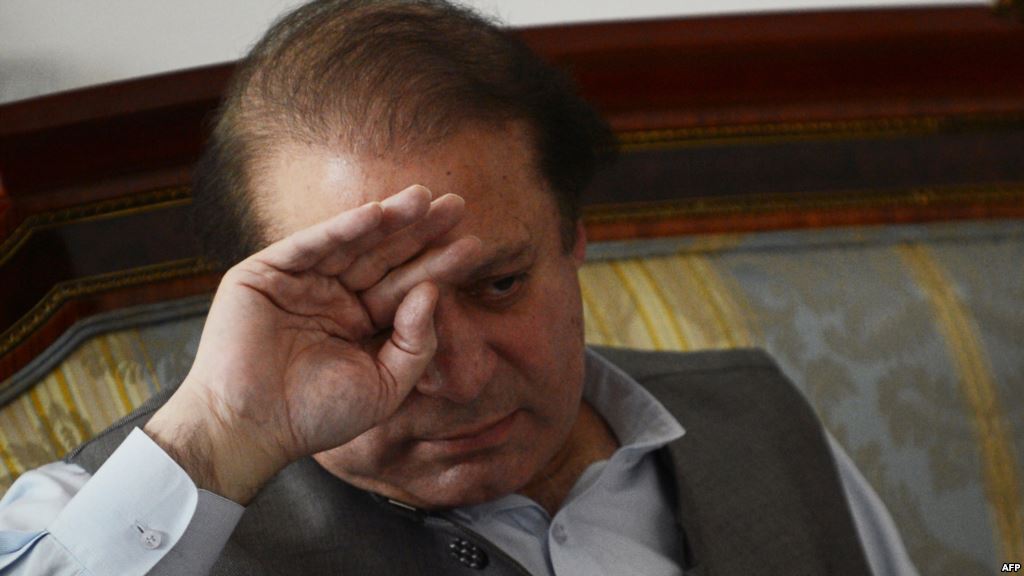The Heat Rises for Nawaz Sharif On All Fronts

TORONTO: AS a politician, Pakistani Prime Minister Nawaz Sharif is feeling the heat – this time literally. As temperatures in the plains of Punjab and shores of Sindh rise to above 45 C in April, it means that the shortfall of megawatts stands at whopping 7000.
Since political pundits of all hues and shapes agree that the upcoming elections in Pakistan will be contested on one issue – power shortfall – that the PML-N government had promised to end in two years by constructing more power plants. However, with four years gone by and one to go till the next elections, none of the promised power plants had started production and in a best case scenario for the PM, the shortfall is set to stay beyond even the next summer.
At the moment, this huge chasm between production and demand, means that in urban areas including the PM’s home town Lahore, households and factories go without power for more than 12 hours while in rural Punjab and Sindh the duration of power shutoff is around 18 hours.
So in sweltering heat without even a fan to cool them, people take to the street right from Cantonments of Rawalpindi to sea shores of Karachi, to protest against the power outage. There are permanent sit-in encampments in front of chief minister houses in Punjab and Sindh sponsored by Sharif’s main political rivals like MQM, Imran Khan and Peoples Party.
As opposition political parties shift the pressure on Nawaz Sharif a notch or two up, nothing seems to be going his way. The Panama verdict has opened up a new investigation against Sharif family, the civil-military relations have once again nose-dived as the generals are not happy with the Dawn Leaks outcome. Despite the fact that as soon as the investigative committee made its recommendations public, Sharif had asked for resignations from his special assistant Tareq Fatemi and Principal Information Officer Rao Tehsin. But it apparently was not enough to cool down the jittery generals as the Inter-Services Public Relations (ISPR) the media wing of military tweeted its displeasure and asked the PM to do more.
Soon after the announcement of the Panama verdict, Sharif’s main opposition in Punjab, PTI of Imran Khan announced a country-wide campaign against the power shortfall and to maintain the pressure on the hapless prime minister and his party. While all this was happening the Pakistan Prime Minister’s Indian tycoon friend Sajjan Jindal decided to say hello to Sharif in Murree. Though the meeting was a brief affair, it was enough to stir up a hornet’s nest. The media had a field day explaining Sharif’s connections with India and PML-N member including the current protegee Maryam had a busy day explaining the visit on media.
Now a very interesting political equation is shaping up. Sharif needs at least one year to prepare for the polls as all the power projects in the pipeline have their completion date set in 2018. The opposition knows it and the military knows it. If Sharif stays in power till the middle of 2018, he would have lowered the political threat by adding more power in the system and people in Punjab would still vote for him. But if the elections are called early in the 2017 winter as all political opponents are striving for, Sharif would have very little to take to the voters and Imran Khan’s PTI would have a clear shot at victory. In Pakistan who wins Punjab, wins Islamabad as the province has more than 150 general seats out of 272. Rain will fall only for those who manage to survive this summer.



